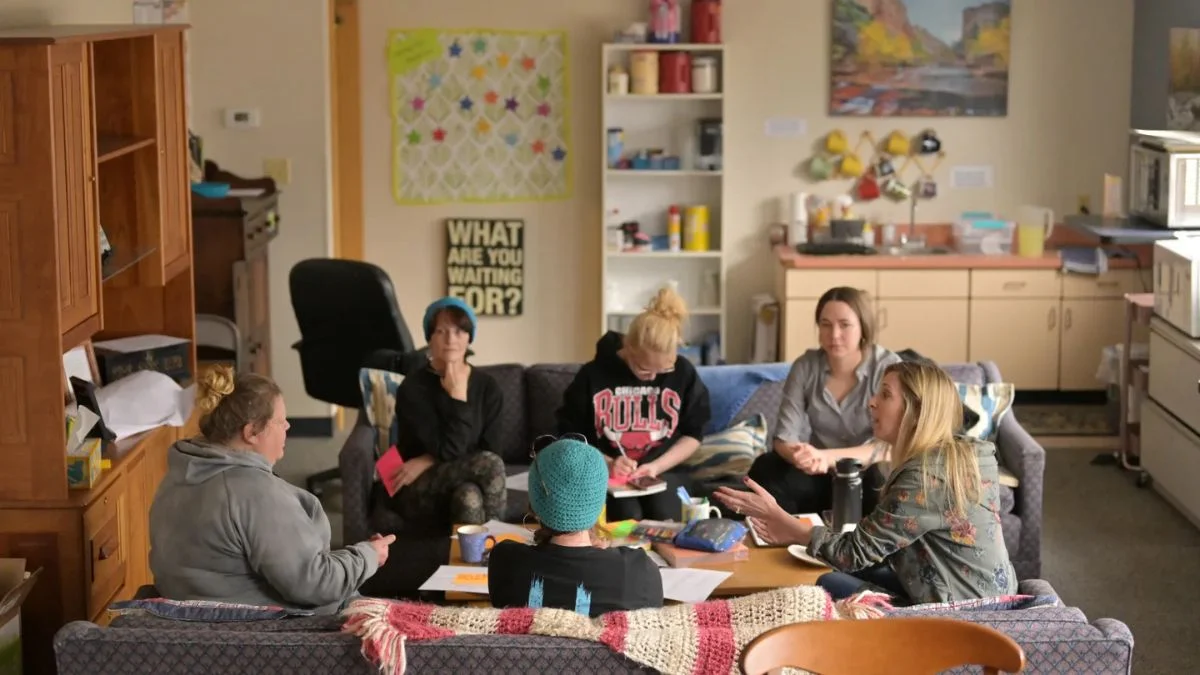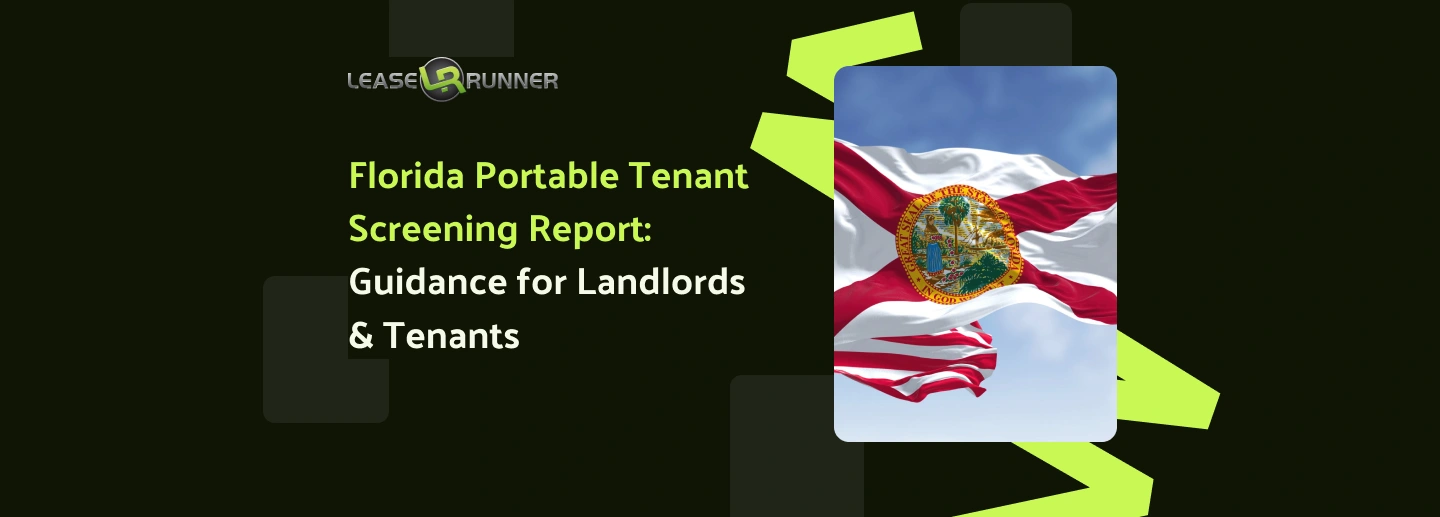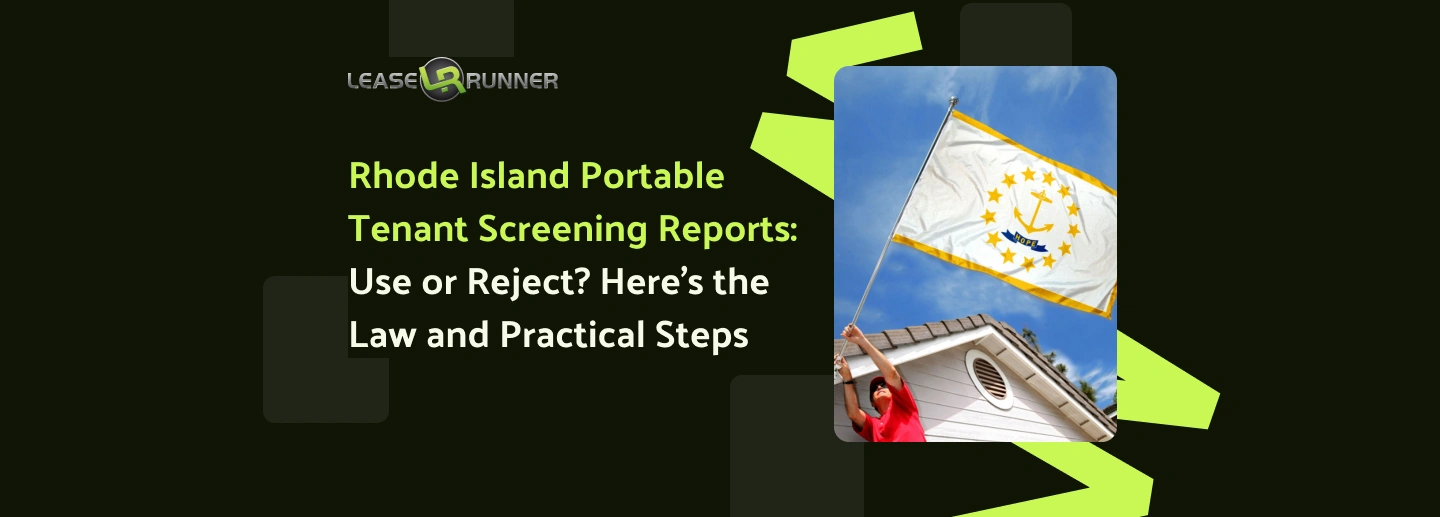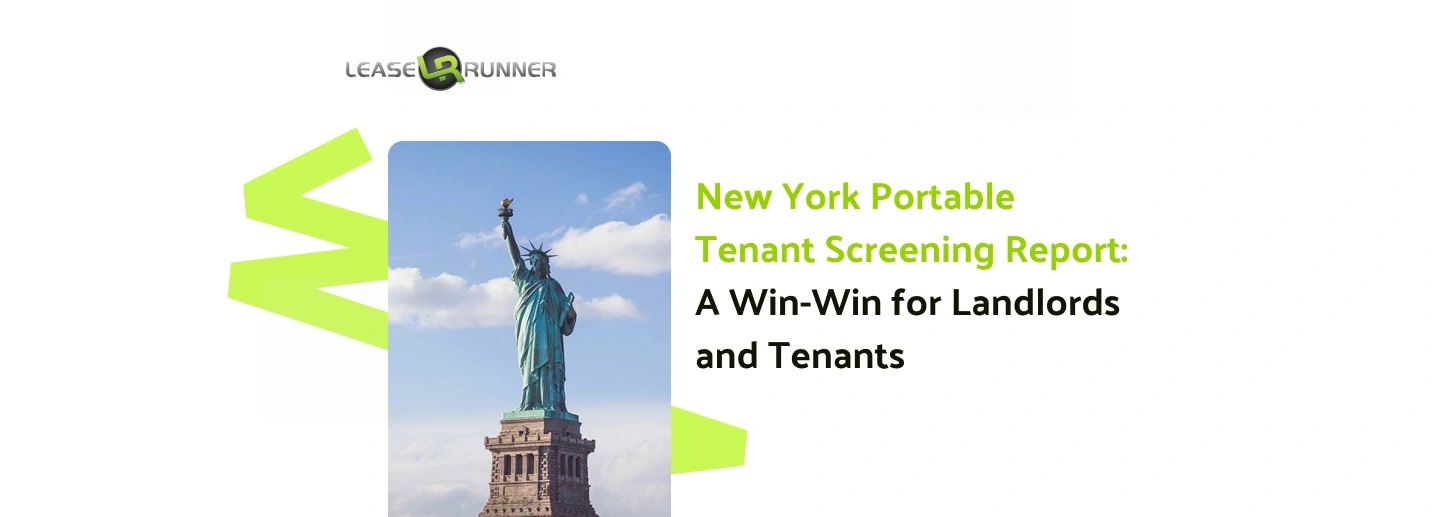Navigating the landscape of tenant screening laws in Colorado can feel complex, but staying compliant is crucial for landlords. The state's regulations, particularly concerning Portable Tenant Screening Reports (PTSRs), have evolved significantly.
This guide provides a detailed Colorado PTSR legal update for 2025, helping you understand the latest requirements and avoid costly mistakes.
Overview of Colorado PTSR Laws

Colorado's regulations on tenant screening aim to reduce barriers for renters and standardize the application process. At the heart of this is the Portable Tenant Screening Report (PTSR). A PTSR is a reusable report containing a prospective tenant's rental history, credit history, and criminal background.
The core idea is that a tenant pays for one comprehensive report and can use it for multiple rental applications, which saves them money and time. To understand more about how PTSRs work in practice, including what landlords must accept and how renters can prepare, you can check out our detailed guide here: Colorado Portable Tenant Screening Report.
Colorado’s PTSR laws have changed recently to improve fairness and transparency. The rules were first set by House Bill 23-1099 (2023) and updated by House Bill 25-1236 (2025). These laws now require landlords to accept tenant-provided PTSRs if they meet certain conditions.
House Bill 23-1099 (2023) – the foundation of PTSR requirements
Known as the "Rental Application Fairness Act," this bill was a major step forward. It established the foundation for the Colorado PSTR legal update, requiring landlords to accept tenant-provided reports under specific conditions:
- Prepared by a Consumer Reporting Agency: The report must be generated by a consumer reporting agency at the tenant's request and expense.
- Includes Required Information: The report must contain verification of employment income, rental and credit history, and criminal history. Since credit is such an important factor in rental decisions, landlords often evaluate whether applicants meet the credit score needed to rent an apartment before moving forward.
- Validity Period: The report must be completed within the previous 30 days.
- Direct Submission: The report must be made directly available to the landlord by the consumer reporting agency.
- No Additional Fees: Landlords are prohibited from charging application or screening fees when a valid PTSR is provided.
This legislation aimed to reduce the financial burden on tenants applying to multiple properties and to standardize the tenant screening process across Colorado. Under this law, landlords couldn't charge an application fee if a tenant provided a qualifying PTSR.
You can find the full text of the law and its requirements here: Colorado House Bill 23-1099.
House Bill 25-1236 (2025) – the newest amendments and expansions
The 2025 legislative session brought new changes that landlords must now incorporate into their processes. House Bill 25-1236, which becomes effective on January 1, 2026, modifies and expands upon the existing portable tenant screening report rules. Key changes include an extended validity period for PTSRs and new regulations specifically for tenants with housing subsidies:
- Direct Tenant Submission: Tenants are now permitted to submit PTSRs directly to landlords, without requiring submission through a consumer reporting agency or third-party website.
- Exclusion of Credit Information for Subsidized Tenants: For tenants using housing subsidies, PTSRs are not required to include credit history, credit scores, or adverse credit events.
- Prohibition on Considering Adverse Credit Events for Subsidized Tenants: Landlords are prohibited from considering adverse credit events when evaluating tenants who use housing subsidies.
These amendments aim to further streamline the rental application process and ensure equitable treatment of all prospective tenants, regardless of their financial background.
Key Timelines and Effective Dates Landlords Must Track
Staying on top of effective dates is essential for compliance. Here are the main deadlines to be aware of:
- August 7, 2023: House Bill 23-1099 took effect, mandating the initial requirements for accepting PTSRs.
- January 1, 2026: House Bill 25-1236 becomes effective. Landlords must have their policies, forms, and training updated by this date to reflect the new PTSR rules.
Example: A landlord receives a PTSR on March 1, 2026, from a tenant using a housing voucher. The report is valid until March 30, 2026 (30 days). The landlord must accept the report, cannot request additional credit checks, and must consider the tenant fairly regardless of any prior adverse credit events.
Core Legal Obligations for Landlords

To ensure Colorado fair housing compliance, landlords must follow several key rules.
1. Mandatory acceptance of tenant-provided PTSRs
The Colorado PTSR legal update mandates that landlords accept PTSRs that meet content and validity requirements, including employment, rental, and criminal history verification. This is also related to HUD criminal background check requirements. This mandate is outlined in House Bill 23-1099, which took effect on August 7, 2023.
2. Validity period and required content of a PTSR
For a PTSR to be considered "valid," it must meet specific criteria outlined in the law. A PTSR must be prepared by a consumer reporting agency and include the following information:
- Name and contact information of the prospective tenant.
- Verification of employment and income.
- Last-known address.
- Rental and credit history for each jurisdiction indicated as a prior residence.
- A criminal history record check for all federal, state, and local convictions.
- A statement from the prospective tenant that there has been no material change in the information (e.g., bankruptcy status, criminal history) since the report was generated.
3. Rules on application and background check fees
Colorado law imposes specific restrictions on application and background check fees:
- Prohibition of Additional Fees: Landlords are prohibited from charging prospective tenants an application fee or any other fee to access or use a PTSR provided by the tenant.
- Refund Requirements: If a landlord does not accept a PTSR and instead conducts their own background check, they must provide the prospective tenant with a copy of the consumer report and inform them of their right to dispute any inaccuracies with the reporting agency.
- Adherence to Fair Practices: Landlords must ensure that any fees charged comply with state and local laws, including providing clear disclosures and adhering to refund policies when applicable.
These rules are designed to protect tenants from unfair financial burdens during the application process.
4. The “one application at a time” exception
Colorado law provides an exception to the mandatory acceptance of PTSRs under certain conditions:
- Limitation on Application Fees: The exception applies if the landlord does not accept more than one application fee at a time for a dwelling unit. If the unit is rented to more than one occupant, this limitation applies to each prospective tenant or tenant group.
- Refund Policy: The landlord must refund the total amount of the application fee to each prospective tenant within 20 calendar days after receiving written communication from the prospective tenant or the landlord declining to enter into a lease.
If these conditions are met, the landlord is not required to accept a PTSR from a prospective tenant.
2025 Legal Updates Affecting Landlords

The changes introduced by House Bill 25-1236 are significant. Here's what you need to know:.
Direct tenant submission of PTSRs
Tenants can now submit PTSRs directly to landlords, bypassing third-party agencies. This simplifies the process, reduces costs, and gives tenants more control over their information. Landlords must accept direct submissions as long as the report meets content and validity requirements.
Special rules for tenants with housing vouchers (Section 8 and other subsidies)
This is one of the most impactful changes. For applicants using a housing subsidy, such as a Section 8 voucher, the PTSR does not need to include a credit history report, credit score, or information about adverse credit events.
Prohibition on considering “adverse credit events” for subsidized tenants
For applicants with housing subsidies, landlords are legally prohibited from using credit history, credit scores, or adverse credit events (like past-due rent, collections) as a basis for denying their application. This is a critical Colorado fair housing compliance measure designed to prevent discrimination based on a tenant's financial history when their rent is largely guaranteed by a subsidy.
For more information, please see our resource on Portable Tenant Screening Reports in Colorado.
Compliance Risks and Penalties

Non-compliance can be costly. The consequences for violating Colorado rental application laws are serious and designed to incentivize landlords to follow the rules.
Financial Penalties
Non-compliance with PTSR rules can result in fines and monetary penalties. Landlords must accept valid PTSRs, avoid charging prohibited fees, and adhere to new content and validity requirements. Penalties vary depending on the violation’s severity and recurrence.
For example, a landlord who violates the PTSR laws can be liable for a penalty of $2,500, along with court costs and attorney fees, as outlined in C.R.S. § 38-12-905.
The 7-Day “Cure Period” for Violations
The law provides a grace period. If a landlord receives a notice of violation and cures the violation within 7 calendar days, the penalty is significantly reduced to only $50. This "cure period" provides an opportunity to correct mistakes before they become more expensive.
For example, A landlord mistakenly rejects a valid PTSR. If they accept it within 7 days of notification, they can avoid fines.
Enforcement Powers of the Colorado Attorney General
The Attorney General's office is authorized to independently bring action to enforce the “Rental Application Fairness Act”, as stated in C.R.S. § 38-12-905(5). This includes ordering compliance, issuing fines, and taking legal action against landlords who consistently violate the law.
Practical Guidance for Landlords
To ensure you are fully compliant with the new Colorado rental application laws, here are some practical steps you can take:
- Updating rental application forms and screening policies: Review and revise all your application documents. Make sure they clearly state that you will accept a valid PTSR and inform applicants of the new requirements and fee rules. You must also update your screening policies to reflect the special considerations for subsidized tenants. When updating your forms, it also helps to revisit questions to ask tenants and ensure you avoid any questions you cannot ask a potential tenant under fair housing guidelines.
- Training staff to handle PTSRs properly: Property managers and leasing agents need to be trained on the new rules. They should know how to properly receive and process a PTSR and understand the new 30-day validity rule. Staff must also be educated on the prohibition of using credit history for subsidized tenants.
- Managing screening budgets when tenants provide PTSRs: Since you cannot charge a fee for a PTSR a tenant provides, you may need to adjust your budget. Remember, this saves you the cost of running a report yourself, so it's a trade-off.
- Adjusting evaluation criteria for tenants with housing subsidies: Your screening criteria must be updated to comply with the new rules. For tenants with housing subsidies, you can still evaluate factors like rental history, criminal background, and employment history, but you must exclude any consideration of their credit history.
Common Mistakes Landlords Make Under the New Law

The new regulations create new opportunities for a common mistake in Colorado PTSR compliance. Here are some pitfalls to avoid:
- Rejecting PTSRs because of delivery method: As of January 1, 2026, you cannot demand a report come directly from a third-party agency. A tenant can provide it to you directly. Rejecting it for this reason is a violation.
- Charging application or screening fees when a valid PTSR is provided: This is the most common and easily avoided mistake. If the tenant provides a valid PTSR, you absolutely cannot charge them a fee for an application or background check.
- Misusing credit history for tenants with housing subsidies: This is a major compliance risk. Even if a subsidized tenant's PTSR includes credit information, you are legally prohibited from using it to make a rental decision.
- Failing to update application forms and staff training in time: Waiting until the last minute can lead to costly non-compliance. Start updating your materials and training your staff well before the January 1, 2026, effective date.
Avoiding these mistakes is essential to comply with the Colorado PSTR legal update and prevent penalties.
Conclusion
The 2025 Colorado PTSR legal update introduces significant changes for landlords, including extended PTSR validity, direct tenant submissions, and special protections for tenants with housing subsidies. Staying compliant with these updates not only helps landlords avoid fines and legal issues but also promotes fair and efficient tenant screening.
To simplify compliance and streamline your rental application process, consider using LeaseRunner. LeaseRunner’s platform makes it easy to accept portable tenant screening reports, manage applications, and stay up-to-date with Colorado’s evolving rental laws—helping you save time, reduce costs, and ensure fairness for every prospective tenant.







